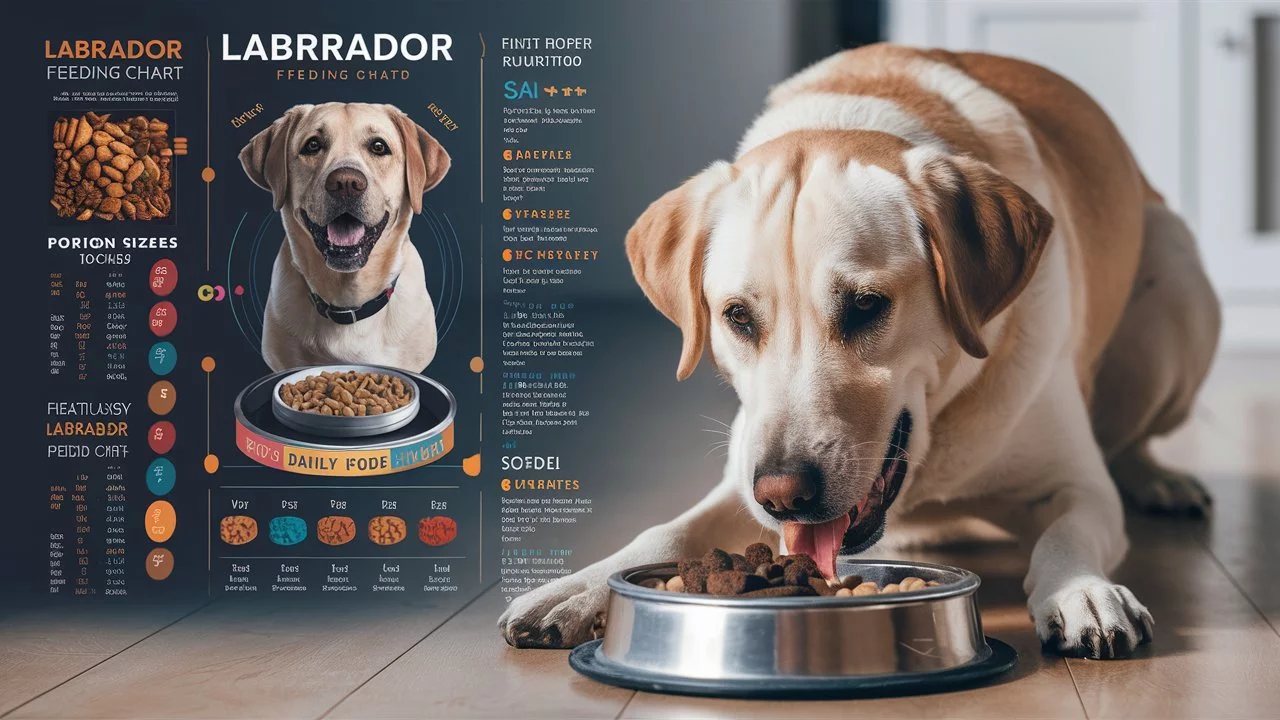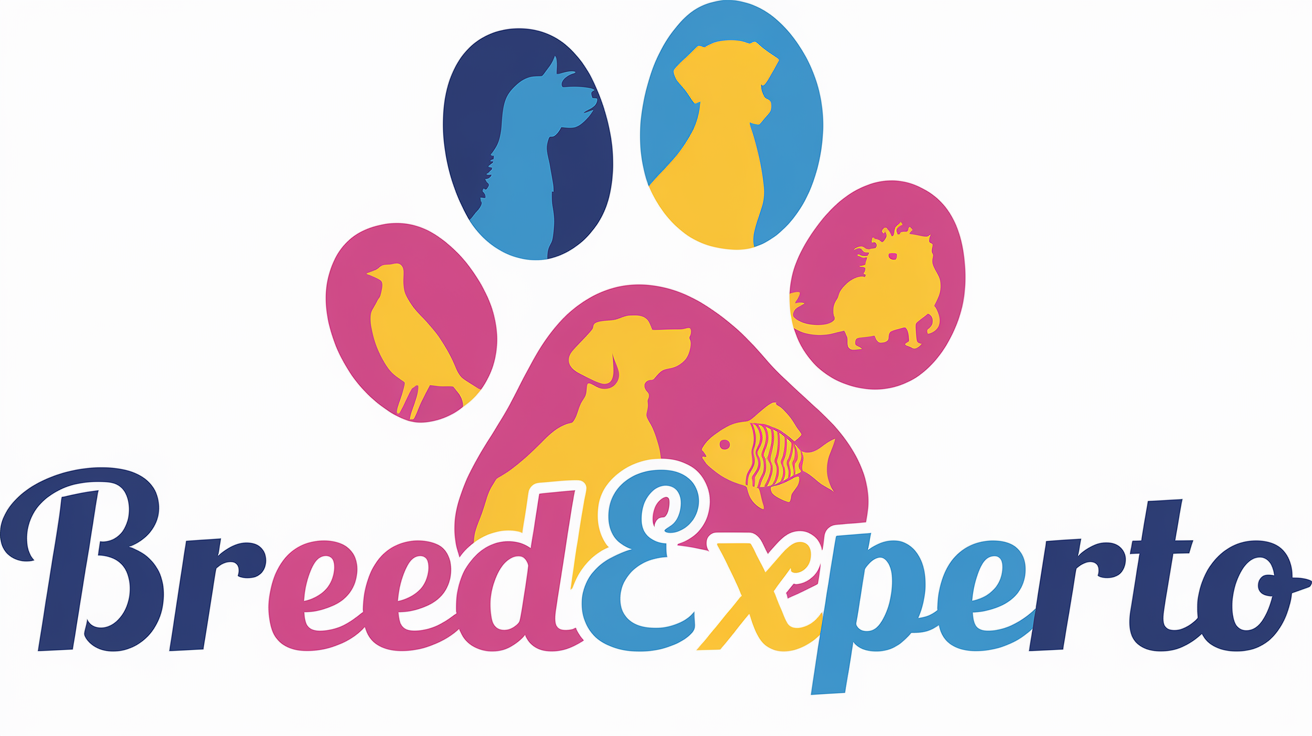Proper nutrition is essential for maintaining the health and happiness of your Labrador Retriever.
As one of the most popular dog breeds worldwide, Labradors require a balanced diet tailored to their specific needs throughout their lives.
This guide will walk you through a detailed Labrador feeding chart, essential nutrients, and practical feeding tips to ensure your furry friend thrives.
Understanding Your Labrador’s Nutritional Needs

Labrador Retrievers are known for their friendly nature and boundless energy. However, their dietary requirements can vary significantly based on age, size, and activity level. A well-balanced diet will help maintain a healthy weight and promote overall well-being.
- Age: Puppies have different nutritional needs compared to adults and seniors. As they grow, their requirements will change.
- Size: Labradors can range from 55 to 80 pounds, depending on their gender and genetics.
- Activity Level: Active Labradors will require more calories compared to those with a sedentary lifestyle.
Understanding these factors is crucial to developing a feeding plan that supports your dog’s unique needs.
Labrador Feeding Chart
A Labrador feeding chart can help you determine the appropriate amount of food to give your dog based on their life stage. Below is a simplified chart that outlines recommended daily caloric intake and portion sizes.
| Age | Daily Calories | Portion Size (Approx.) | Type of Food |
| 0-4 Weeks | N/A | Mother’s milk | Puppy Formula (if needed) |
| 4-10 Weeks | 200-400 | 1-2 cups | High-quality puppy food |
| 3-6 Months | 400-600 | 2-3 cups | Puppy kibble |
| 6-12 Months | 600-900 | 3-4 cups | Large breed puppy food |
| 1-8 Years | 1,000-2,000 | 2-4 cups | Adult kibble |
| 8+ Years | 800-1,600 | 1.5-3 cups | Senior dog food |
Notes:
- Always adjust portions based on your dog’s activity level, weight, and specific health needs.
- Consult with your veterinarian to fine-tune this chart based on your dog’s individual requirements.
Feeding Your Labrador Retriever Puppy

Puppyhood is a crucial period for your Labrador’s growth and development. Providing the right nutrition during this stage will set the foundation for a healthy life.
Early Nutrition (Birth to 4 Weeks)
During the first few weeks, puppies rely entirely on their mother’s milk, which provides essential nutrients and antibodies. If the mother is unavailable, a high-quality puppy formula can be used as a substitute.
- Colostrum: The first milk produced is rich in antibodies and is vital for the puppy’s immune system.
- Weaning: By four weeks, puppies can start transitioning to solid food.
Weaning Process (4 to 10 Weeks)
The weaning process should begin around four weeks of age. Gradually introduce solid food while still allowing access to the mother for comfort and nutrition.
- Solid Food: Use high-quality puppy kibble mixed with water to soften it.
- Frequency: Feed small meals 4-5 times a day to accommodate their tiny stomachs.
Puppy Food Stage (3 to 6 Months)
As your Labrador grows, their nutritional needs will increase. Focus on providing balanced puppy food rich in proteins and fats.
- Recommended Brands: Look for brands like Royal Canin or Hill’s Science Diet, known for their quality.
- Portion Size: Aim for 2-3 cups per day, divided into multiple meals.
Growing Fast (6 to 12 Months)
During this period, Labradors will experience rapid growth. It’s essential to provide adequate nutrition to support bone and muscle development.
- Feeding Schedule: Continue feeding 3-4 times a day.
- Monitor Growth: Regularly check your puppy’s weight and body condition.
Adulthood (1 to 8 Years)
Once your Labrador reaches adulthood, their nutritional needs will stabilize, but they still require a balanced diet.
- Caloric Intake: Adjust daily calories based on activity level.
- Feeding Schedule: Most adult Labradors thrive on two meals per day.
Nutritional Needs for Adults
- High-Quality Protein: Look for meat as the first ingredient.
- Healthy Fats: Omega-3 and Omega-6 fatty acids for a healthy coat.
- Complex Carbohydrates: Brown rice, sweet potatoes, and vegetables for energy.
Older Dog Nutrition (8+ Years)
As your Labrador enters their senior years, their dietary needs will change again. Older dogs may require fewer calories but still need adequate nutrition to maintain health.
- Weight Management: Monitor food intake to prevent obesity, which is common in senior Labradors.
- Joint Health: Consider supplements like glucosamine and chondroitin to support joint function.
Recommended Feeding Practices for Seniors
- Feeding Schedule: Stick to two meals a day.
- Wet Food: Incorporate wet food to help with hydration and make meals more palatable.
Essential Nutrients for Labradors
A balanced diet for Labradors must include various essential nutrients to promote health and longevity.
Proteins
Importance: Proteins are crucial for growth, repair, and overall health.
- Sources: Chicken, beef, fish, and lamb.
- Recommended Percentage: 20-30% of the diet, depending on life stage.
Fats
Importance: Fats provide energy and support skin and coat health.
- Sources: Fish oil, chicken fat, and flaxseed oil.
- Recommended Percentage: 8-15% of the diet.
Carbohydrates
Importance: Carbohydrates are a vital energy source.
- Sources: Brown rice, oats, and sweet potatoes.
- Recommended Percentage: 30-50% of the diet.
Vitamins and Minerals
Importance: Vital for various bodily functions, including bone health and immune support.
- Sources: Fruits and vegetables (e.g., blueberries, carrots).
- Essential Vitamins: A, D, E, K, and B-complex vitamins.
Water
Importance: Hydration is key to overall health.
- Daily Intake: Always provide fresh, clean water. A Labrador should drink about 1 ounce of water per pound of body weight.
Risks of Overfeeding
Overfeeding can lead to obesity, a common issue among Labradors. Excess weight can cause various health problems, including joint issues, diabetes, and heart disease.
Signs of Obesity
- Difficulty in getting up or moving.
- Excessive panting or lethargy.
- Noticeable belly fat or difficulty feeling ribs.
Tips to Prevent Overfeeding
- Portion Control: Use measuring cups for accuracy.
- Regular Exercise: Ensure daily walks and playtime.
Special Dietary Considerations
Some Labradors may have allergies or sensitivities that require dietary adjustments. Pay attention to your dog’s reactions to specific foods.
Common Allergies
- Protein Sources: Some dogs may be allergic to chicken or beef.
- Grains: Wheat and corn are common allergens.
Health Issues Requiring Dietary Adjustments
- Hip Dysplasia: Special diets may help manage weight and joint health.
- Diabetes: Low-carb diets can be beneficial.
Practical Feeding Tips
Feeding your Labrador should be a well-planned process. Here are some practical tips to consider:
Establishing a Feeding Routine
- Consistency is Key: Feed your dog at the same time every day.
- Monitor Behavior: Observe your dog’s eating habits and adjust as needed.
Choosing High-Quality Dog Food
- Reading Labels: Look for whole ingredients and avoid fillers.
- Brand Reputation: Choose brands known for high-quality nutrition.
Homemade vs. Commercial Diets
- Benefits of Homemade Diets: Tailor meals to specific needs.
- Consult a Vet: Always check with a veterinarian before making significant changes to your dog’s diet.
Conclusion
Feeding your Labrador Retriever the right nutrition is vital for their health and well-being. From puppyhood through their senior years, understanding their unique dietary needs will help you provide a balanced diet that supports a long, healthy life.
By following this comprehensive guide, you can ensure your furry friend enjoys every meal while staying fit and happy.












